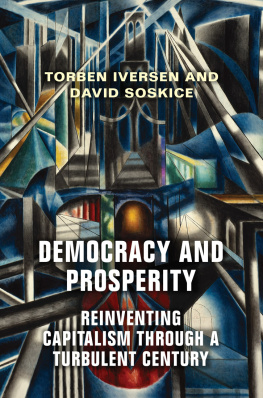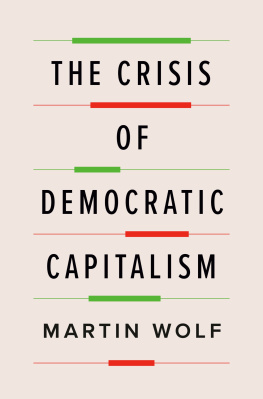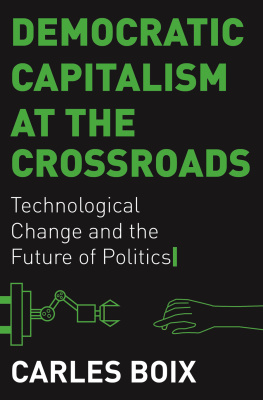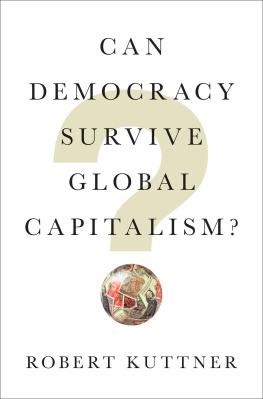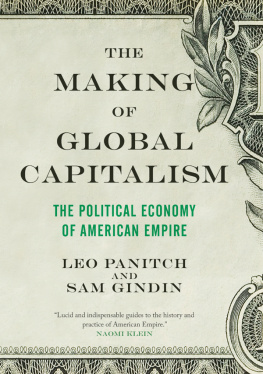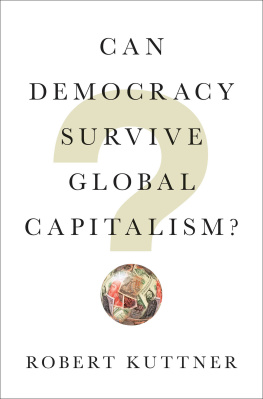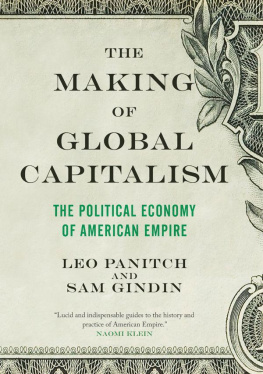
DEMOCRACY AND PROSPERITY
Democracy
and Prosperity
Reinventing
Capitalism through
a Turbulent Century
Torben Iversen and David Soskice
PRINCETON UNIVERSITY PRESS
PRINCETON AND OXFORD
Copyright 2019 by Princeton University Press
Published by Princeton University Press
41 William Street, Princeton, New Jersey 08540
6 Oxford Street, Woodstock, Oxfordshire OX20 1TR
press.princeton.edu
Jacket art: Joseph Stella (18771946), Old Brooklyn Bridge, c. 1941.
Oil on canvas. 193.67 173.35 cm. (76 68 in.) Museum of Fine Arts, Boston.
Gift of Susan Morse Hilles in memory of Paul Hellmuth, 1980.197
All Rights Reserved
Library of Congress Control Number: 2018949305
ISBN 978-0-691-18273-55
British Library Cataloging-in-Publication Data is available
Editorial: Eric Crahan and Pamela Weidman
Production Editorial: Leslie Grundfest
Jacket/Cover Design: Carmina Alvarez
Production: Erin Suydam
Publicity: Tayler Lord
Copyeditor: Emily Shelton
This book has been composed in Adobe Text Pro
Printed on acid-free paper.
Printed in the United States of America
10 9 8 7 6 5 4 3 2 1
CONTENTS
The Politics of the Knowledge Economy and the Rise
of Populism 216
TABLES AND FIGURES
PREFACE
This book started from our discussions of a paradox.
Yet despite its importance it has been curiously little discussed in the academic literature.
On the one hand, the last century of advanced capitalism in the developed world has been one of deep and conflictual instability: two world wars (as well as Vietnam and Korea), technological revolutions, massive social and economic transformation, the collapse of the white colonial empires, fascism, the rise and then fall of the communist bloc and the Cold War, and two great financial crises with subsequent extended deep recessions.
On the other hand, this same developed world of advanced capitalism in this same last century has been spectacularly successful in any remote historical comparison in massively raising living standards, in widely diffusing education, and in remaining highly egalitarian in comparison to states elsewhere. Equally it has been a century in which democracyestablished in all the then industrialized countries by the early 1920shas remained in place (leave aside the 193545 exceptions).
As we see it, the advanced capitalist democracies, for all their instability and social problems not least at present, have been remarkably resilient and effective over this whole period. What we want to understand in the book is what mechanisms have driven that resilience and effectiveness over this long century.
In seeking to understand this resilience we want to propose a theory of advanced capitalist democracy, covering its many different forms. Of course, we make much use of the large body of work on varieties of capitalism. But the goal of the book is to develop an overall framework theory of how advanced capitalism works in the different advanced democracies. With the theory we address the key question of resilience.
This is a central historical question. Moreover, if the mechanisms are understood, they may also shed light on the questions that trouble thoughtful observers today: the rise in inequality, the consequences of globalization, the financial crisis, the growth of populism, the meaning of Brexit and Trump, and so on.
Whatever the analysis of current problems, our understanding of the long term has become reasonably clear from our research over the last decade or so. Very broadly, democracy and advanced capitalism have been symbiotic in the advanced nation-states. Democracies positively reinforce advanced capitalism and well-functioning advanced capitalism reinforces democratic support. In our framework theory advanced capitalism is driven by the advanced democratic nation-state: democracy drives advanced capitalism. And in this process the autonomy of the advanced nation-state has increased even as globalization and mutual dependence have risen.
This is very far from any received view.
The great theorists of advanced capitalismamong them Marx, Schumpeter, Hayek, Polanyi, and Poulantzasall saw its relation to democracy as deeply problematic, although from very different political vantage points. The same is true of major contemporary commentators, notably leading Marxists including Streeck and Piketty, but also Buchanan, Tullock, and other public choice theorists, on the right of the political spectrum. More generally in the political economy and political science literatures, a very widespread assumption is that the interests of capital and labor are opposed. We have come to a different conclusion.
What, then, are the key elements of the symbiotic relationship? We see three:
(i) | The role of government is central: The state/government has to ensure that companies operate in a broadly competitive environment; it has to ensure that labor is cooperative, allowing management the right to manage; and to provide an effective system of education, training, and research as technology develops. All these in turn mean that the state is powerful enough to carry through these broad strategies. But what is its incentive to do so? Capitalism left to itself will hardly choose to operate in a competitive environment. We argue next that advanced democracies supply the incentive. |
(ii) | Parties to be electable have a reputation for managing advanced capitalism effectively: There is typically a significant proportion of the electorate who would not vote for parties without a reputation for economic competence and concern for the advanced sectors of the economy. A key empirical fact is that advanced capitalism is (relatively) skilled-labor intensive, so that it demands and has demanded a large skilled workforce. Because the cooperation of such a workforce is important, efficiency wages align the interest of skilled labor (and its unions) with the broad success of advanced capitalism. Add to this, aspirational voters concerned that they and/or their children get jobs in these advanced sectors. This does not imply support for a particular party, left or right, but instead that electable parties have a reputation for effective management of advanced economies. |
(iii) | Advanced capital is geographically embedded in the advanced nation-state rather than footloose: The third element of our approach rules out race to the bottom welfare states and/or imposition of subsistence wages in the advanced sectors, and more generally it also justifies advanced governments making huge investments in education, training, and research, which footloose companies might otherwise carry abroad perhaps with their skilled workforces. The value added of advanced companies is geographically embedded in their skilled workforces, via skill clusters, social networks, the need for colocation of workforces, and skills cospecific across workers andgiven their limited codifiabilitythe implicit nature of a large proportion of skills. The nature and pattern of industrial organization has changed substantially through the century but the insight of economic geographers that competences are geographically embedded has not. Thus, while advanced companies may be powerful in the marketplace, advanced capitalism has little structural power, and competition makes it politically weak. (As noted above, this is a major difference from the less advanced world, to which Rodriks analysis of globalization applies.) |
Next page
